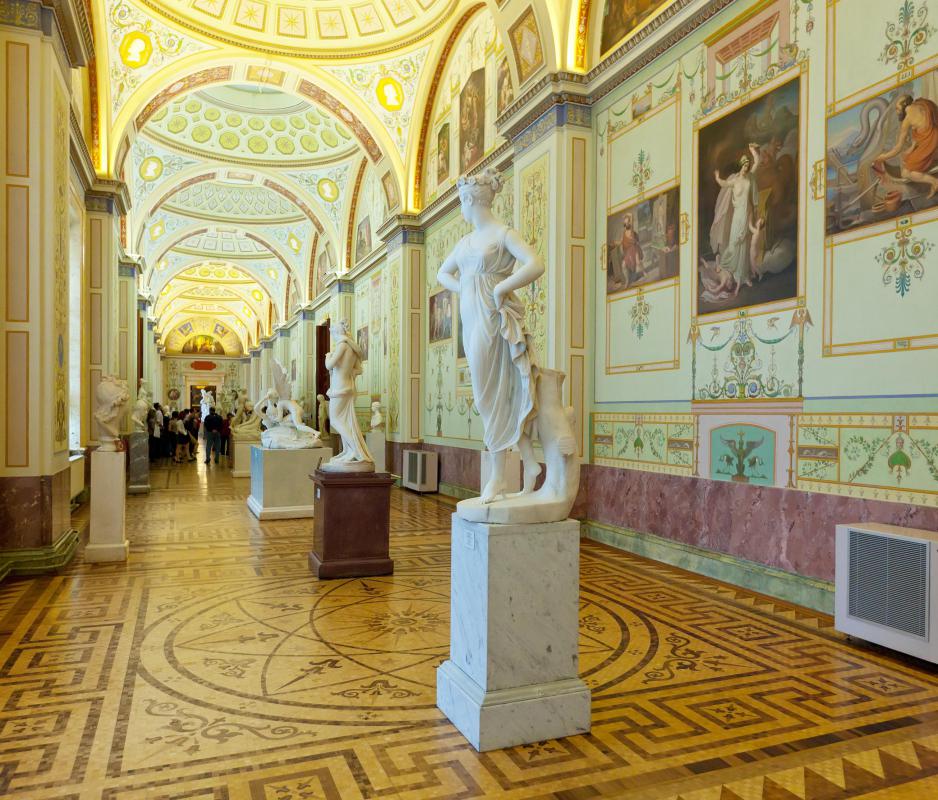At WiseGEEK, we're committed to delivering accurate, trustworthy information. Our expert-authored content is rigorously fact-checked and sourced from credible authorities. Discover how we uphold the highest standards in providing you with reliable knowledge.
What does a Curator do?
Curators manage collections at museums, libraries, and historically significant sites. Professionals typically are responsible for overseeing the acquisition of new items, conducting research on them, and displaying them for public or private viewings. Many curators take on additional administrative roles such as organizing and promoting special events. In order to fulfill the variety of important job duties, a curator usually must have extensive experience and education in her field of specialty.
Many curators work at museums dedicated to specific subjects, such as art, natural history, engineering, and aerospace. In most settings, curators research, acquire, authenticate, and display interesting and significant pieces. An art curator, for example, may be interested in starting a collection of Modernist paintings. She would research the movement, identify her favorite pieces, and find out where she can acquire them permanently or borrow them as part of a cooperative between other museums. The curator decides where and how to display pieces, and what educational information to provide to visitors in the form of descriptive signs, programs, and tour scripts.

Natural history museum curators specialize in the research and preservation of fossils, artifacts, rocks, and biological specimens. Many curators are experts in paleontology and biological anthropology, and are able to use their extensive knowledge to confirm that certain pieces are authentic. Curators often work with field researchers to study new discoveries and display important findings for the public to see. They make models and plaster casts from actual fossils to build realistic skeletons and replicas.

Large museums typically have several curators on staff to manage different departments. For example, a natural history museum may employ a paleontologist, evolutionary biologist, anthropologist, and geologist. It is common for a smaller institution, such as a local historical home or library, to be owned and operated by a single individual. Curators are often involved in fundraising and public awareness activities to help promote and protect collections. They frequently write grant proposals, organize educational materials, and submit research articles to scientific, literary, or art journals.
A master's or doctoral degree typically is necessary to become a curator in most settings. In addition, professionals often gain years of experience in other positions, such as field researchers, archivists, conservators, and teachers before becoming curators. When beginning a new curator job, an individual usually acts as an assistant to an experienced professional. She may be required to spend several months studying the contents of the museum to learn as much as possible about different collections before assuming head curator responsibilities.
AS FEATURED ON:
AS FEATURED ON:












Discussion Comments
Okay, I understand if you need to spend ages getting degrees and years of experience for a museum curator job, but do you have to do all of that to become an art gallery curator? Especially if it's a modern art gallery, I don't see this job being nearly as demanding of you to know so much about the subjects as you would need to know if you were curating a museum.
So do you need a degree to become an art gallery curator? Is there a way to become an art gallery curator through being an artist, rather than through studying a bunch of other people's art? I want to be curator of an art gallery, but I kind of want to do that sooner rather than later. It doesn't sound like a tough job.
@SeHiro - It's not all about your life experience, you know. Sure, you might love your field of study, but working that field out IN the field is a whole different job than being a museum curator. If you do one of those very hands-on anthropology jobs, like interacting with different cultures and studying them, you might just find a curator job to be painfully boring.
Curators do a lot of quiet researching, paperwork and being nitpicky about how and where pieces are displayed in their museum. If you're a perfectionist as well as being very good at research, you'll do well at it.
I work in anthropology, and it sounds like a dream job to be a museum curator! I think it's really smart that curators are basically recycled anthropologists and other professionals in their fields. It's like the more laid-back form of continuing your job so you don't have to retire yet.
I know I'll have a lifelong fascination with anthropology and culture, and after a long career of working with these things I'm going to be the ideal person to be curator of an anthropological museum.
Of course, some curator training will be in order, but I won't mind. Second to being an anthropologist, being a curator is my dream job!
The title of museum curator is one of those things you hear a lot in movies and books and even news articles about museums, but nobody ever really explains what a curator does. Thanks to this article, now I know.
It sounds like a curator's job is a hybrid between two jobs. The first is the manager and person who takes all responsibility (and praise) for museum displays, including accuracy of the information presented. Secondly, the curator has to be a learned scholar in whatever his specialty is.
I'd imagine depending on what his specialty is, a curator would or wouldn't qualify for any particular curator job. They would have to study with a particular curator job in mind, such as curator of a particular art museum they know displays the kind of artwork they're a professional in.
I wonder if there's some listing somewhere for museums and curators to list themselves and find each other to match up well? Is it just luck of the draw if a museum finds a curator with exactly the skill set they need, or what?
Post your comments